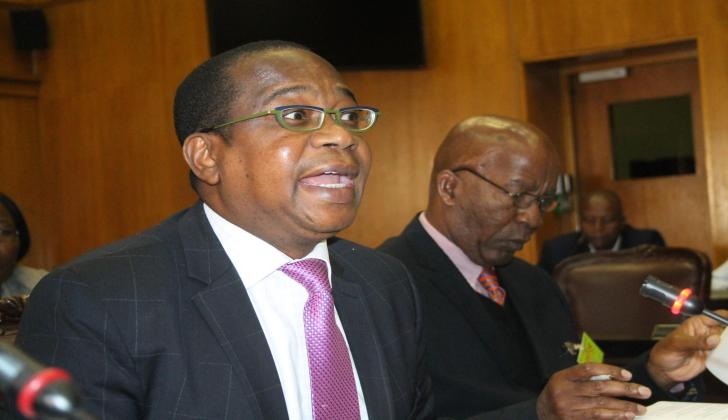News / National
Zimbabwe govt threatens to sanction businesses
28 May 2024 at 09:17hrs |
0 Views

The government has issued a warning to businesses found pricing their goods and services above the official exchange rate in a bid to stabilize the newly introduced currency, Zimbabwe Gold (ZiG).
Following the discontinuation of the Zimdollar in April this year due to its significant depreciation against the United States dollar, the Reserve Bank of Zimbabwe (RBZ) introduced ZiG. However, ZiG has faced resistance from Zimbabweans who fear its value will be eroded by the continued demand for the US dollar, which many now use to safeguard their savings against inflation.
To safeguard the value of ZiG, the government recently enacted a Statutory Instrument prohibiting the setting of prices above the official exchange rate. Under this instrument, businesses found in violation could face a civil penalty of ZiG200 000 or an equivalent value in the goods sold.
Despite these measures, some businesses continue to price their goods above the government-fixed exchange rate of 13.56 ZiG to the US dollar. In a recent interview, Finance, Economic Development, and Investment Promotion minister Mthuli Ncube cautioned businesses against this practice, emphasizing the importance of compliance with the official rate.
Ncube stated, "Businesses charging well above what the government stipulates should stop... The regulations are designed to benefit everyone by ensuring currency stability." He further warned that non-compliant businesses risk facing sanctions and penalties from the Financial Intelligence Unit.
Additionally, Ncube announced plans to increase the circulation of ZiG notes in response to high demand, particularly for smaller denomination notes and coins. This move aims to address challenges related to providing change and meeting the demand for smaller currency units.
Furthermore, Ncube highlighted the government's commitment to maintaining a tight monetary policy through the central bank to ensure positive real interest rates and control the growth of the money supply. This approach aims to keep implied year-on-year inflation below the current policy interest rate of 20%.
Following the discontinuation of the Zimdollar in April this year due to its significant depreciation against the United States dollar, the Reserve Bank of Zimbabwe (RBZ) introduced ZiG. However, ZiG has faced resistance from Zimbabweans who fear its value will be eroded by the continued demand for the US dollar, which many now use to safeguard their savings against inflation.
To safeguard the value of ZiG, the government recently enacted a Statutory Instrument prohibiting the setting of prices above the official exchange rate. Under this instrument, businesses found in violation could face a civil penalty of ZiG200 000 or an equivalent value in the goods sold.
Despite these measures, some businesses continue to price their goods above the government-fixed exchange rate of 13.56 ZiG to the US dollar. In a recent interview, Finance, Economic Development, and Investment Promotion minister Mthuli Ncube cautioned businesses against this practice, emphasizing the importance of compliance with the official rate.
Ncube stated, "Businesses charging well above what the government stipulates should stop... The regulations are designed to benefit everyone by ensuring currency stability." He further warned that non-compliant businesses risk facing sanctions and penalties from the Financial Intelligence Unit.
Additionally, Ncube announced plans to increase the circulation of ZiG notes in response to high demand, particularly for smaller denomination notes and coins. This move aims to address challenges related to providing change and meeting the demand for smaller currency units.
Furthermore, Ncube highlighted the government's commitment to maintaining a tight monetary policy through the central bank to ensure positive real interest rates and control the growth of the money supply. This approach aims to keep implied year-on-year inflation below the current policy interest rate of 20%.
Source - newsday
Join the discussion
Loading comments…
























